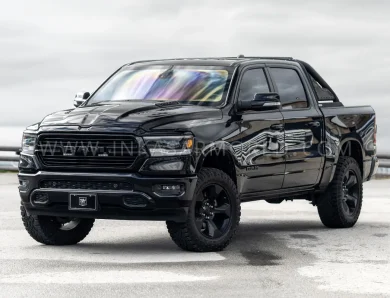
Limonene an Effective Safe Compound For Pest Control?
Citrus fruits are the best safe compound for pest control. Not only do they contain ingredients that kill or repel pests, but citrus peels also make an excellent insecticide. Many companies make flea shampoos with these same beneficial properties in mind.
Limonene can be a natural insecticide and repellent in citrus fruits that can be extracted from the peel of lemons and other citrus species, like limes or oranges. It has been found to have an attractive effect on pests such as flies.
It feeds off these itinerant creatures by emitting pheromones into their habitat, thus attracting them towards sweet-smelling areas where they will eventually become trapped until it’s too late for escape.
In this article, we’ll discuss how effective limonene can be as an ingredient in pesticides and other techniques when using this as an alternative to pesticides. Alsom the relationship between limonene and linalool, which are common citrus extracts used as an ingredient in pesticides.
Know The Deeper Roots of Limonene
The terpenes found in citrus fruits are responsible for their distinctive scents and flavors. The d-limonene, which is only present as its levorotatory form (bergamot oil), has a much less potent odor than the +ve version of this particular molecule.
However, it can still be seen as active if mixed with an aromatic compound like eucalyptus oil.
Though d-limonene is a toxic substance with well-known properties, it has been exhaustively studied and even though its toxicity is high at first glance.
Since their health could potentially become compromised over time if exposed too much. However, not so fast. The low environmental impact of limonene contrasts. D-limonene products are being used in industrial, medical, and residential applications.
Add More Oranges
Scientists have isolated the insecticidal properties of limonene and linalool found in citrus peel extract. Containing these compounds can help you get rid of pesky insects such as fire ants or fleas without harming your animals.
However, there’s some controversy surrounding their safety so use them with care.
The two most effective insecticidal compounds are citrus oils, which can be found in crude d-limonene and linalool.
Terpenes have been shown to kill mosquitos when applied as a repellent or coated on surfaces like clothes and shoes (90% of it). Citrus also has an oil consistency that makes up its fresh floral odor.
With the stimulating properties of limonene and linalool, these oils can cause convulsions in insects.
That’s why it is essential to be careful when applying them since they are contact poisons that heighten sensory nerve activity leading to paralysis if applied incorrectly or mixed with other pesticides without warning signs.
Linalool, a component of the soapberry family and natural pest repellent, is potentially harmful when applied topically.
Linalyl acetate is a sweet-smelling oil that can irritate some skin areas such as eyes or mucous membrane tissues if it contacts them directly for too long periods without washing first.
Both moderate and high doses of these substances can cause tremors, excess salivation, lack of coordination, muscle weakness. However, the symptoms are usually temporary. Lasting several hours to days before recovering fully with limonene promotes tumor formation in mouse skin.
Limonene and linalool are both currently registered for use against fleas, aphids, and mites. However, limonene also works well on other insect pests.
Like fire ants (insects), houseflies/stable flies black soldier flypaper wasps. They have been shown in field tests to immobilize all fruit flies within 15 minutes or kill them in two hours.
Citrus oils are a versatile treatment for many different ailments, including those that affect livestock and humans. They have also been used in the fumigation process and pest control at home.
How a Legion of Limonene An Effective Compound for Pest Control
D-Limonene is a chemical found in citrus fruits that can have toxic and beneficial effects. It may act on sensory cells, increasing their activity which sends out wrong signals to muscles causing tremors or convulsions.
It can also be found in plants and animals, such as citrus oils. The insect repellent effects of this substance were first discovered by scientists who noted an interesting phenomenon.
When sprayed with D-Limonene at night time, insects stay away from it the next day because they find its smell unpleasant.
PBO synergizes well with the d -Limonene one, potentiating its efficacy against pests. However, even more fascinating than these physicochemical properties are those related to health impacts.
Recent research suggests it may also affect our central nervous system leading to quick paralysis among susceptible species like ants or Termites though notably, not all types seem similarly impacted.
It is essential when dealing with natural products, like plants, trees, and herbs to keep this in mind. Natural materials have limited efficacy because they are not as potent or persistent, which means that a “crushing” effect may not happen if used incorrectly.
Natural ingredients are essential in places or seasons with low parasite challenges but may be insufficient for controlling well-established populations.
For pets, natural active ingredients may be enough to control fleas and ticks. However, it will not help livestock overcome the challenges of an infestation because they need synthetic pesticides that kill all stages of these pests.
Limonene is a natural insect repellent found in citrus fruits.
Oil extracted from the peel contains this powerful anti-pest chemical, making it an essential component of many brands’ oils and scents used for personal care purposes such as cleaning cloths or diffusing into your home to create feelings of relaxation.
However, since pests also hate limonite linalool, if you’re looking forward to getting rid of them altogether, then consider adding some fresh organic juice full of healing nutrients.
Orange peel has been used for centuries to keep bugs away from plants. The smell of an orange peel is enough motivation.
But it also contains limonene which helps break down protective waxes on pests so they cannot survive and protects against fungal disease by destroying their reproductive capabilities.
Putting some into flower pots or garden paths will help you create a more appealing space without the hassle of communal gardening.
Lean on d-Limonene
One of the two optic isomers of limonene, D-limonene has a citrus smell and can be found naturally in many plants.
While it’s not as abundant, compared to its l-isomer counterpart turpentine-like scent that you find more often outside on other flowers or fruit trees, this terpenoid still holds an important position among different cannabinoids.
D-limonene is a versatile chemical that has many uses in different industries. It is primarily used as an insecticide, but it can also be found in fragrances, cosmetics, home, and personal care products.
Find the safe compound for pest control in one of the natural leaders in Land and Water Chemistry. Brewer International offers various limonene-based products for innovative pesticides on your farm.




